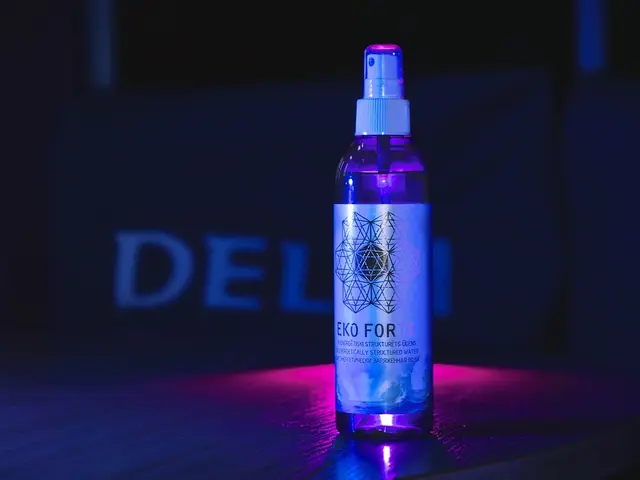Effective Sunburn Treatments: Unexpected Home Remedy Revealed
As the high summer season in the Northern Hemisphere reaches its peak, it's crucial to be well-informed about sunburn treatment. While liberal and vigilant SPF application is the primary way to avoid skin damage, accidents happen, and knowing how to treat sunburns is essential.
**Effective Remedies**
Black tea, often used as a soothing agent, may help reduce inflammation and provide some relief from sunburn symptoms. However, its effectiveness is largely anecdotal, and there is limited scientific evidence to support its use as a primary treatment[1].
Aspirin and ibuprofen are effective over-the-counter pain relievers that can help reduce the discomfort associated with sunburns by reducing inflammation and pain[1][5]. Cool milk compresses can also help reduce heat and irritation in sunburns.
Hydrocortisone 1% cream can be beneficial for itching and swelling associated with sunburns[1]. Aloe vera gel and fragrance-free moisturizers can soothe and hydrate the skin[5]. Refrigerated moisturizers can provide instant cooling relief.
**Ineffective or Questionable Remedies**
Some remedies, such as urinating on sunburns, using egg whites, butter or grease, and untested or unproven topical treatments, are ineffective or potentially harmful[2][3][4]. Vinegar can irritate compromised skin, and Greek yogurt may cause a reaction due to its acidity and additives.
**Best Practices for Sunburn Treatment**
Cooling baths or compresses can help reduce heat and relieve pain. Staying hydrated is key to recovery, so drinking plenty of water is recommended. It's also crucial to avoid sun exposure until the sunburn heals.
Avoiding occlusive ointments early on in sunburn treatment is recommended. Instead, use aloe vera gel, fragrance-free moisturizers, or refrigerated moisturizers to keep the skin hydrated without irritation.
**Important Considerations**
One-third of adults are expected to experience at least one sunburn this year[6]. If sunburn symptoms include blisters, chills, fever, mental confusion, severe pain, feelings of extreme cold, headache, nausea, vomiting, seek medical attention immediately.
Sources:
[1] Mayo Clinic. (2021). Sunburn first aid. Retrieved from https://www.mayoclinic.org/first-aid/first-aid-sunburn/basics/art-20056561
[2] American Academy of Dermatology. (2021). Sunburn FAQs. Retrieved from https://www.aad.org/public/diseases/skin-conditions/sun-damage/sunburn/faqs
[3] Healthline. (2021). Home remedies for sunburn. Retrieved from https://www.healthline.com/health/home-remedies-for-sunburn
[4] WebMD. (2021). Sunburn treatment. Retrieved from https://www.webmd.com/skin-problems-and-treatments/sunburn/sunburn-treatment
[5] Cleveland Clinic. (2021). Sunburn treatment. Retrieved from https://my.clevelandclinic.org/health/diseases/16705-sunburn-treatment
[6] Skin Cancer Foundation. (2021). Sun protection facts and statistics. Retrieved from https://www.skincancer.org/prevention/sun-protection/sun-protection-facts-statistics
- In the realm of health-and-wellness, science suggests that hydrocortisone 1% cream can alleviate itching and swelling caused by sunburns, while aloe vera gel and fragrance-free moisturizers can soothe and hydrate sun-damaged skin.
- For those interested in skincare and science, both aspirin and ibuprofen are proven over-the-counter pain relievers to manage discomfort associated with sunburns, making them valuable additions to a summer skin-care routine.





